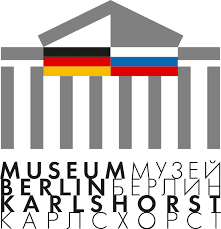

Museum Karlshorst
The Museum Berlin-Karlshorst is an important cultural center that documents the history of World War II and the post-war period. It offers comprehensive exhibitions, educational programs, and events that promote intercultural exchange and convey historical perspectives.
Museum Berlin-Karlshorst
editThe Museum Berlin-Karlshorst, located in the historic district of Karlshorst in Berlin, is a unique cultural and historical center dedicated to the commemoration and documentation of World War II and the post-war period in Europe.
Key Products and Services
edit- Permanent Exhibition: The museum presents a comprehensive permanent exhibition that addresses the German-Soviet War from 1941 to 1945 and the unconditional surrender of the Wehrmacht on May 8, 1945. The central location of the exhibition is the hall of the former officers' casino, where the surrender document was signed[2][3].
- Special Exhibitions: In addition to the permanent exhibition, the museum regularly showcases special exhibitions that deal with topics related to German-Soviet relations, the war and its consequences, as well as artistic engagements with these themes[2][3].
- Educational Offerings: The museum offers an extensive educational program for school classes and adults, including guided tours, workshops, and project days. It also organizes academic conferences, lectures, and study trips[1][3].
- Events: The museum hosts lecture evenings, book presentations, film screenings, and other cultural events that highlight the historical and cultural significance of the site[1].
Main Mission and Values
editThe main mission of the museum is to document and convey the history of World War II and the post-war period from various perspectives. It promotes exchange and encounters between the nations involved in the war, particularly Germany, Russia, Ukraine, and Belarus. The museum advocates for a multi-perspective and multi-layered representation of history and emphasizes the importance of memory and understanding for the present[1][2].
Sustainability Goals and Initiatives
editThe museum is engaged in several initiatives to preserve and promote historical memory:
- International Cooperation: The museum collaborates in a multinational sponsorship with institutions from Germany, Russia, Ukraine, and Belarus to develop a shared culture of remembrance[1].
- Education and Research: Through its extensive educational program and the organization of academic events, the museum contributes to ongoing research and dissemination of historical content[1][3].
- Cultural Diversity: The exhibitions and events of the museum reflect the cultural diversity and different perspectives of the involved nations, contributing to a deeper understanding and greater tolerance[1][2].
Additional Information
editThe Museum Berlin-Karlshorst has been restructured several times since its founding in 1967. After the withdrawal of Soviet troops from Germany, it was re-established in 1995 under a German-Russian sponsorship and later expanded with the involvement of Ukraine and Belarus. The permanent exhibition was last revised in 2013 to provide a modern and multi-layered representation of history[1][2].
The museum is 100 percent funded by the Federal Commissioner for Culture and Media and offers its visitors free admission, including a free audio guide on the first Sunday of each month[1][3].
Sources:
edit- 1 - https://www.museum-karlshorst.de/ueber-uns/museum/
- 2 - https://de.wikipedia.org/wiki/Museum_Berlin-Karlshorst
- 3 - https://www.museum-karlshorst.de
- 4 - https://www.kunstleben-berlin.de/veranstaltungsort/deutsch-russisches-museum-berlin-karlshorst/
- 5 - https://www.service.bund.de/Content/DE/DEBehoerden/D/Deutsch-Russisches-Museum-Berlin-Karlshorst-eV/Deutsch-Russisches-Museum-Berlin-Karlshorst-eV.html?nn=4641496